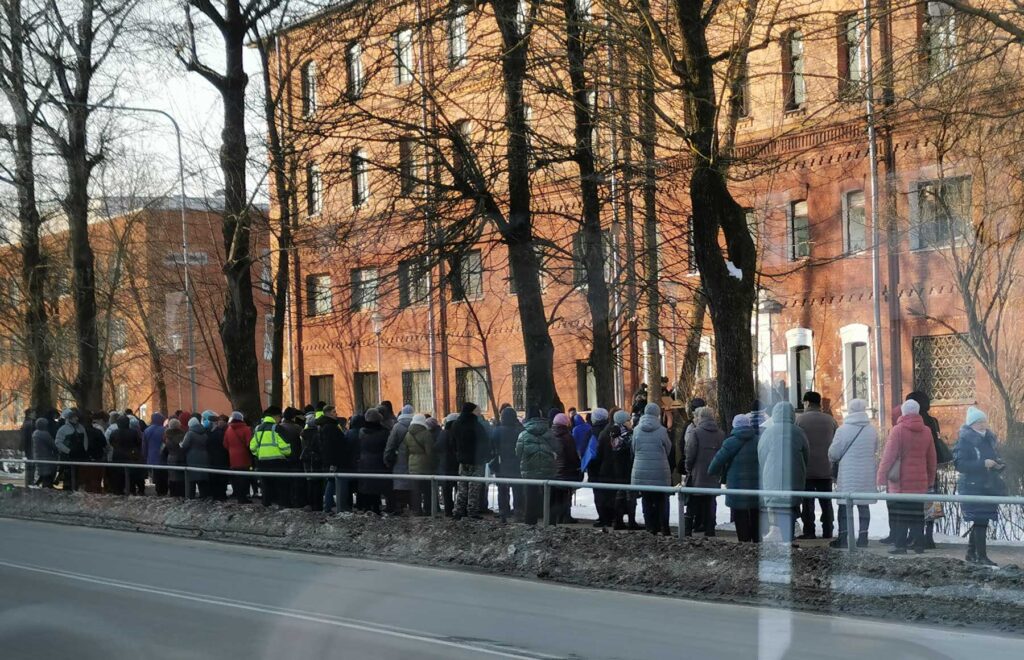Legalization of Russian documents in Estonia: perhaps you do not need to go to the registry office
février 26, 2025
Near the Narva registry office, large lines have been lined up for several weeks. This is due to the termination of the legal assistance agreement between Estonia and Russia: the townspeople with Russian documents are in a hurry to register them so that they do not have to legalize according to the new rules. How to understand whether it is necessary to go to the registry office, what documents to take with you and what to do after March 18 – the date of the end of the contract.
Due to the large queues at the Narva registry office and questions from journalists of various media of the city of Goroprava, Narva organized a press conference, where the adviser to the department of the population of the Ministry of Internal Affairs of Estonia VIIU-Mari Fürstenberg answered the questions exciting society. She noted that the main change after the termination of the contract between Estonia and Russia is that there will be a need to put a special stamp on the documents – an apostille confirming the authenticity of the signature and print, as well as the qualities in which the person who signed the document performed. The Narva Gazeta already wrote that the apostille is being done in the country where the original document is drawn up. That is, if the document is received in Russia, then the apostille is executed in Russia, and an apostille in Estonia must be put on an Estonian document.
Who needs to stand in line, but who does not
In order to have time to register Russian documents before the entry into force of new rules, the Narvites began to convert to the registry office massively, due to which large lines were formed. But do everyone need to stand in them and what data should still be provided to the registry office, and which is not necessary? VIIU-Mari Fürstenberg emphasized that the registry office register only four documents: birth certificate, marriage or divorce documents, as well as a death certificate received in Russia. This is necessary to reflect the data in the register of the population. But perhaps they are already there. Then nothing needs to be done. Therefore, before going to the registry office, the specialist strongly recommends checking the availability of information on the Eesti.ee portal. If a person has difficulties using a computer, then you can ask children or relatives to help go to the site.
If the document is received in Russia, then the apostille is executed in Russia, and an apostille in Estonia must be put on an Estonian document.
The Russian birth certificate must be provided to the registry office only to prove kinship between parents, children, sisters and brothers, as well as if a person is idle and there is no marital situation in the population of the population. As for the testimonies of marriage or divorce, if they were received in Russia after 2010 and a person changed the surname in the police department of Estonia, then, most likely, there is already data in the register of the population. But it is better to check and, if necessary, make. And the death certificate of the spouse received in Russia should be provided to confirm the status of a widow or widow. This can be useful in the design of real estate transactions and other operations for which the spouse is necessary.
If there are no data on the eesti.ee.ee portal, marriage, divorce or widowhood, then you still need to contact the registry office. But this is not necessary to do this at the place of residence. For example, you can go to a neighboring city, where the queue is possible less than in Narva, and provide documents there. In extreme cases, if a person does not have time to enter data to the Population Register until March 19, then this can be done for free, but already with the apostille received in Russia.
A passport and diploma will wait
Now the registry office also records the passport of the Russian Federation, so that it is clear that a person has everything in order with current documents. But since the passport does not need to be certified by an apostille, it can be provided later, not focusing on the date of termination of the contract between Estonia and Russia, so as not to stand in large lines.
By the way, it is interesting that after the end of the legal assistance agreement to two Russian citizens in Estonia it will be easier to get married or divorce: now this can only be done with a notary or through a court, and from March 19, a marriage or divorce can also be registered through the bureau of registration of the population and family condition.
Documents on education in the registry office also do not need to be submitted, but after March 18, they will also need to put an apostille on them. It is important to note that you can recognize a diploma of a foreign state (not only Russian) in Estonia electronically using the Enik/Naric (Academic Recognition Information Center). This is an international network to promote transparent recognition of educational qualifications received abroad.
In order to add a diploma to the Eesti.ee portal, it is necessary to make scans of all pages and liners with estimates, fill out the questionnaire in Estonian or English on the website of the ENIK/NARIC center and send all the documents to the center by e -mail. If professional qualifications meet international standards, it will be confirmed.
The remaining documents received in Russia after March 18 with an apostille can be provided at the place of requirements in Estonia, they do not need to be registered separately. Documents in Russian can continue to be used in Estonia.
It is important to know
In the Russian Federation, the right to affix an apostille has:
Registry office organs,
The Ministry of Justice of the Russian Federation,
The Ministry of the Interior of the Russian Federation,
Ministry of Defense of the Russian Federation,
Archive bodies of the Russian Federation,
Service for supervision in the field of education of the Russian Federation.
The affixing of the apostille on documents obeys the principle of territorial and functional subordination. This means that documents issued in one region can be certified by an apostille only in this region. A document confirming the presence of education can be certified by an apostille only in the Ministry of Education, notarial documents in the Ministry of Justice, and documents confirming the acts of civil status (birth certificates, registration and divorce, death) are only in the registry office.
Information is taken from the website of the International Consulting Company
https://schmidt-export.ru And https://minjust.gov.ru/ru/Appeals/faq/520/
The Post Legalization of Russian documents in Estonia: perhaps you do not need to go to the registry office FIRST Appeared on gazeta.ee.








